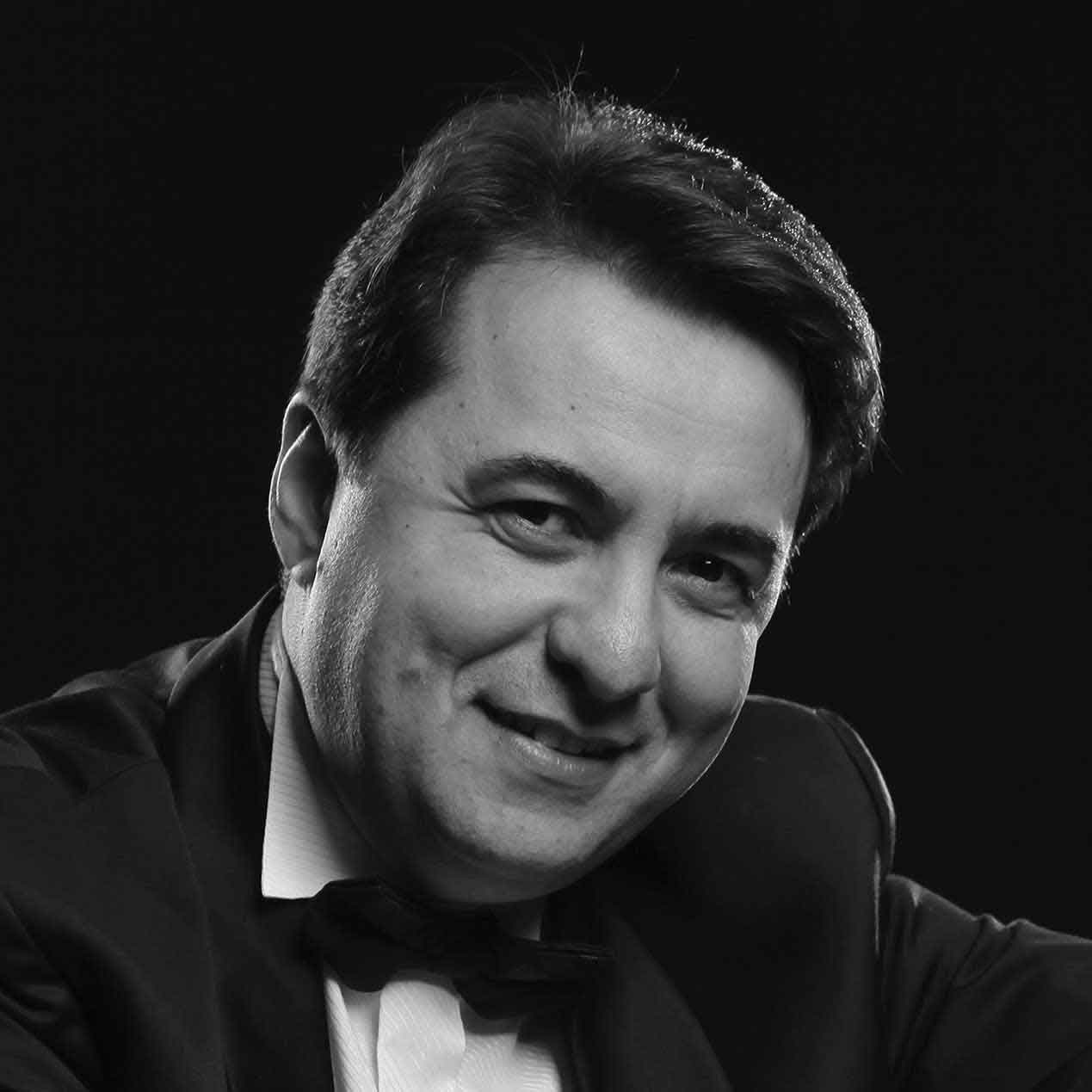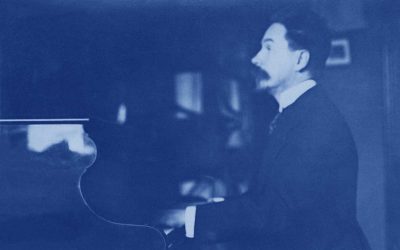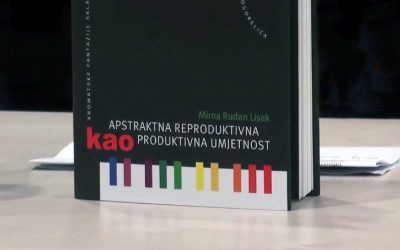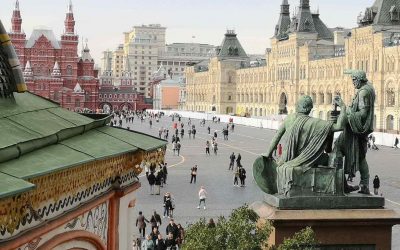The book ”Alexander Nikolayevich Scriabin” written by Igor Belza was translated from Russian into Croatian and published by the Mala zvona publishing house
Valery Kastelsky and Scriabin’s Piano Sonata No. 7
Valery Kastelsky and Scriabin’s Piano Sonata No. 7
Alexander Scriabin playing the piano (photo: © Memorial Museum of A. N. Scriabin, Moscow)

By Prof. Ruben Dalibaltayan
Pianist, full-time Professor at the Academy of Music, University of Zagreb, Guest Professor at the International Academy of Music in Liechtenstein and at the “Talent Music Master Courses” in Brescia, first President of the Croatian Society “Alexander Scriabin”
Valery Kastelsky was one of the greatest Russian pianists and pedagogues of the second half of the 20th century. He studied in Moscow with the legendary Soviet pedagogue Heinrich Neuhaus and was awarded at three major piano competitions: Chopin’s in Warsaw (1960), Long Thibaud in Paris (1963) and the ARD competition in Munich (1967). He is known for his nobility, spirituality, charm and deep and thoughtful performances. From 1992 to 2001, he was the Vice President of the Alexander Scriabin Foundation in Russia (from 1992 until today, the President of the Foundation is Alexander Serafimovich Scriabin, who is also the Honorary President of the Croatian Society “Alexander Scriabin”). As he was one of the last and dearest students of the great Neuhaus, his professor said of him: “Valery Kastelsky is one of my most interesting and favourite students. He knows how to get the audience to listen to music carefully. There is something very individual in his talent. I believe that his distinctive talent will still mature and that the general public will recognize it very soon.”
I was fortunate to be one of the many Professor Kastelsky’s students, and my collaboration with him began in 1997 when I enrolled in the Graduate School at the Tchaikovsky Conservatory in Moscow and it lasted until the year 2000. My memories of him are extremely beautiful both from the professional and from the human point of view. Regardless of the fact that in his young age he won awards at the world’s most famous piano competitions, he was not a “competitive” type, neither according to recordings from those days nor according to pedagogical principles. Being an extremely poetic but also introverted person, he never liked excessively fast tempi and external effects. The content and core of music have always been the focus of his attention. Absolute respect for the composer’s text was mandatory! Also, impeccable pianistic mastery of matter was something that had to be achieved without discussion. But one of the most important components of his pedagogy was working on sound. The nobility and dignity of tone were constant themes of our classes. He never tolerated, and he reacted very sharply to the harsh sound. Even in the greatest forte dynamics he sought the beauty and aristocracy of sound.
Valery Kastelsky plays Scriabin in 1985; Valery Babyatinsky recites poems
Another important component of Kastelsky’s pedagogy was the sense of time. In the first year of my studies, the Professor organized a class concert dedicated to Scriabin. All 10 of his piano sonatas were to be performed during that concert, and I was to learn the 7th sonata. It is a very difficult composition with extremely complicated polyrhythm and polyphony. When I started reading and analyzing the text, I realized that this constant polyrhythm creates a special, magical effect of improvisation and that it can sound quite free and flexible. When I approached it that way, it became much easier to play the sonata. After a few days I happily went to class with the Professor expecting all the praise. But to my regret, the Professor took a pen in his hand right from the beginning of the composition and diligently acted out the metronome to its very end. Playing that sonata accompanied by Professor’s pen was a great torment. All my beautiful ideas about improvisation, flexibility and free treatment of time were destroyed. The same scenario was repeated during the next class . The Professor was absolutely steadfast! Still, after 3-4 hours I started to feel that I was no longer bothered by Professor’s pen, that I could function, feel good and play without rubbing. I realized that this music is wonderful in its organized course. The Professor probably sensed the changes that had taken place and reacted immediately: “Now you can play rubato as much as you want.”
“Valery Kastelsky was one of the great representatives of the Soviet piano school of the second half of the 20th century. At the same time he was a modest and approachable person, an artist who remained in my memory an example of what a true pedagogue should be.”

This great pedagogue, on the example of only one sonata, revealed to me a fundamentally important musical truth: in order to perform rubato well, it must first be possible to play the composition strictly in tempo. Later I went through something similar in Schumann’s Fantasy Op. 17 and in Schubert’s Wanderer fantasy. That chronology has always had to exist. This is why I often point out that Valery Kastelsky was one of the great representatives of the Soviet piano school of the second half of the 20th century. At the same time he was a modest and approachable person, an artist who in my memory remained an example of what a true pedagogue should be.
You may also like our other publications…
Translation of Igor Belza’s book on Scriabin
Book entitled “Abstract Reproductive as Productive Art”
First book in Croatia on Scriabin; subtitle: Chromatic fantasies of the composer A. Scriabin, painter A. Jawlensky and pianist I. Pogorelich
How I met Alexander Serafimovich Scriabin
Prof. Božo Kovačević, former Ambassador of the Republic of Croatia to the Russian Federation, writes about his friendship with Scriabin’s descendant
Translation of Igor Belza’s book on Scriabin
The book ”Alexander Nikolayevich Scriabin” written by Igor Belza was translated from Russian into Croatian and published by the Mala zvona publishing house
Book entitled “Abstract Reproductive as Productive Art”
First book in Croatia on Scriabin; subtitle: Chromatic fantasies of the composer A. Scriabin, painter A. Jawlensky and pianist I. Pogorelich
How I met Alexander Serafimovich Scriabin
Prof. Božo Kovačević, former Ambassador of the Republic of Croatia to the Russian Federation, writes about his friendship with Scriabin’s descendant
Valery Kastelsky and Scriabin’s Piano Sonata No. 7
R. Dalibaltayan about his Professor V. Kastelsky, one of the greatest pianists and pedagogues of the second half of the 20th century



Recent Comments